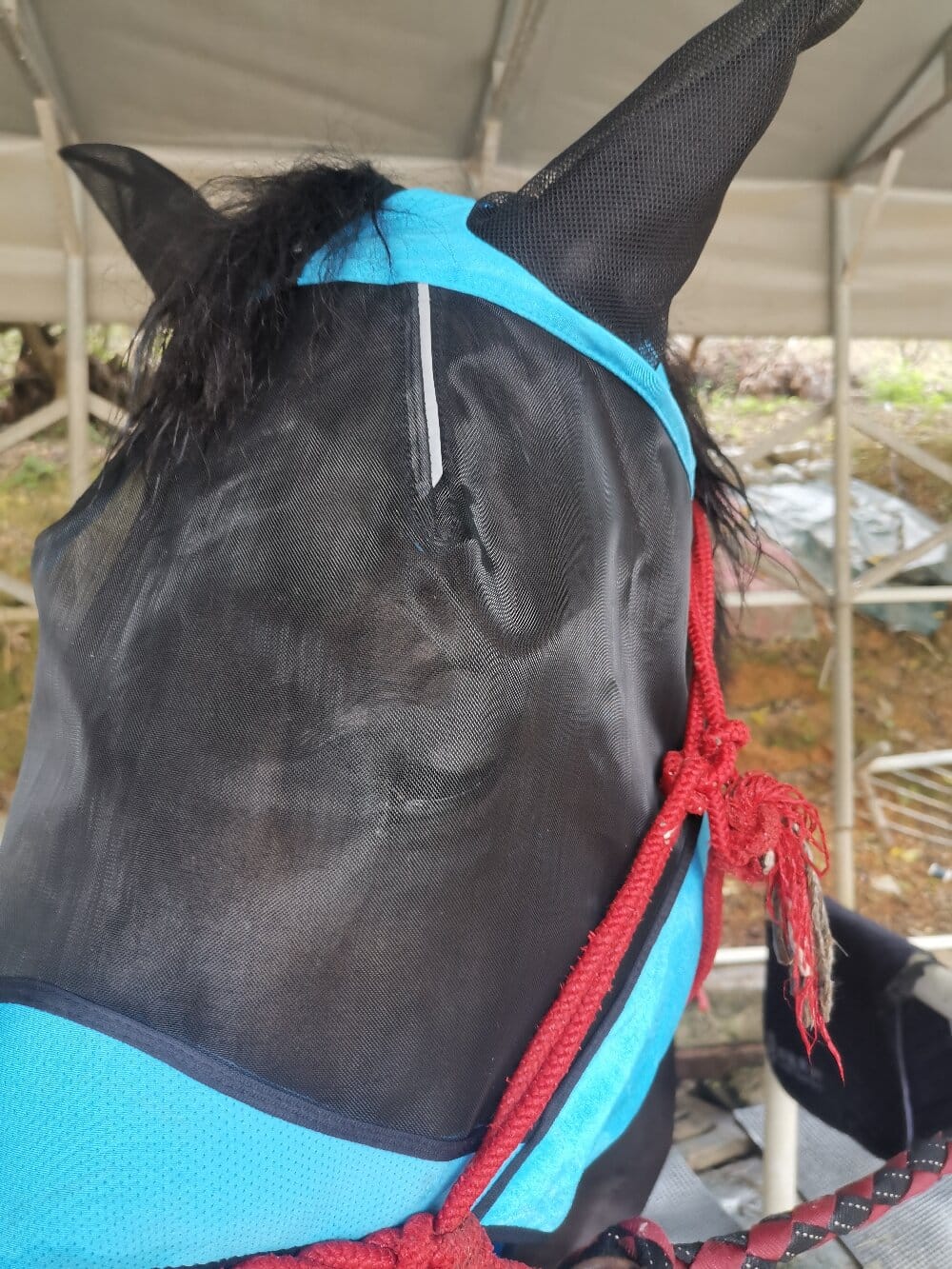Horse fly masks are an essential piece of equine gear designed to protect horses from irritating and potentially harmful insects. These specialized coverings shield the eyes, ears, and sometimes the muzzle from flies, mosquitoes, and other pests, ensuring the animal’s comfort and health. Whether you’re a seasoned equestrian or a casual horse owner, understanding the technical aspects of a fly mask—such as materials, fit, and UV protection—can help you make an informed decision for your horse’s needs.
Key Features of a High-Quality Horse Fly Mask
When selecting a fly mask for your horse, several technical factors come into play. A well-designed mask should offer:
- Breathable Fabric: Mesh materials like polyester or nylon allow airflow while keeping pests out.
- UV Protection: Many masks include UV-resistant coatings to shield sensitive eyes from sun damage.
- Adjustable Fit: Elastic straps or Velcro closures ensure the mask stays secure without causing discomfort.
- Extended Coverage: Some designs cover the ears and muzzle for added protection.
- Durability: Reinforced stitching and tear-resistant fabrics extend the mask’s lifespan.
Why a Horse Fly Mask Matters for Equine Health
Beyond mere convenience, a fly mask plays a critical role in maintaining a horse’s well-being. Persistent insect bites can lead to:
- Eye infections from constant irritation.
- Allergic reactions or dermatitis from fly saliva.
- Stress and agitation, which can affect training and performance.
By reducing exposure to pests, a fly mask helps prevent these issues, promoting a happier, healthier horse.
Choosing the Right Fly Mask: Technical Considerations
Not all fly masks are created equal. Here’s what to evaluate before purchasing:
- Material Quality: Opt for soft, lightweight fabrics that won’t rub or chafe.
- Fit and Size: Measure your horse’s head to ensure proper coverage without restricting movement.
- Visibility: Ensure the mesh doesn’t obstruct the horse’s vision.
- Ease of Cleaning: Machine-washable designs save time and maintain hygiene.
Common Misconceptions About Horse Fly Masks
Some horse owners hesitate to use fly masks, often due to myths such as:
- “They cause overheating”—modern breathable fabrics prevent this.
- “Horses don’t like wearing them”—most adapt quickly once comfortable.
- “They’re only for summer use”—flies can be a year-round problem in some regions.
Understanding these misconceptions can help owners make better choices for their horses.
Conclusion: The Smart Choice for Equine Comfort
A horse fly mask is more than just an accessory—it’s a vital tool for protecting your horse from pests and ensuring long-term health. By focusing on technical details like material, fit, and functionality, you can select a mask that meets your horse’s specific needs. Whether for daily use or seasonal protection, investing in a high-quality fly mask is a decision both you and your horse will appreciate.

